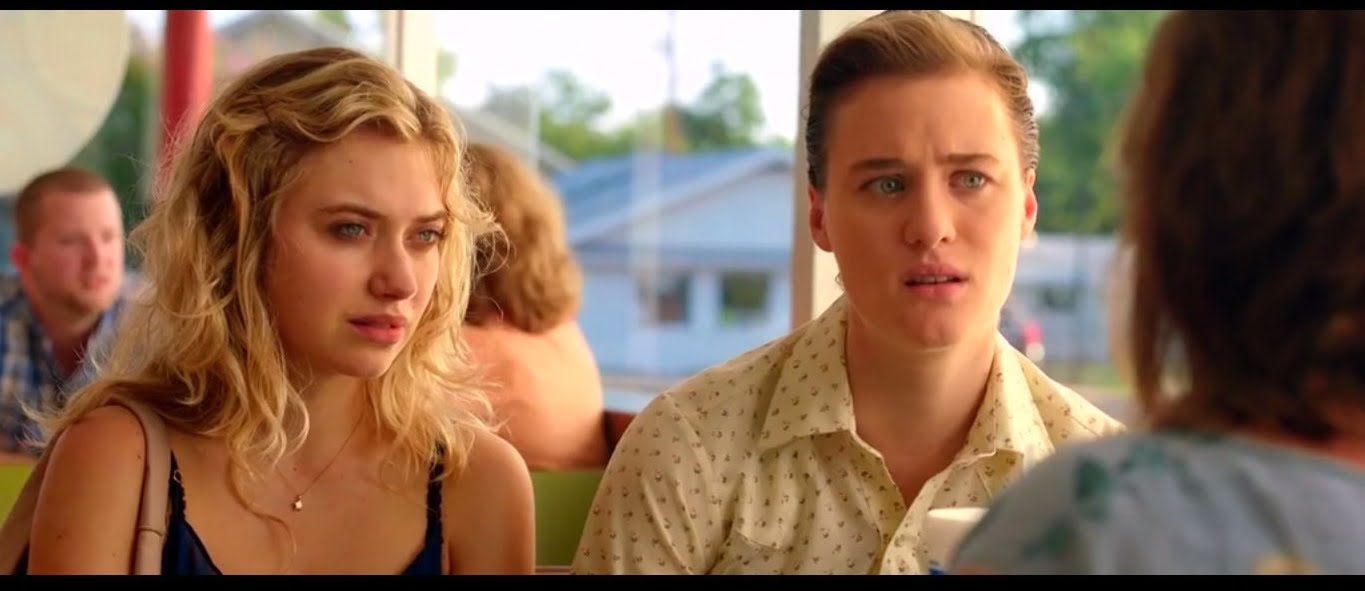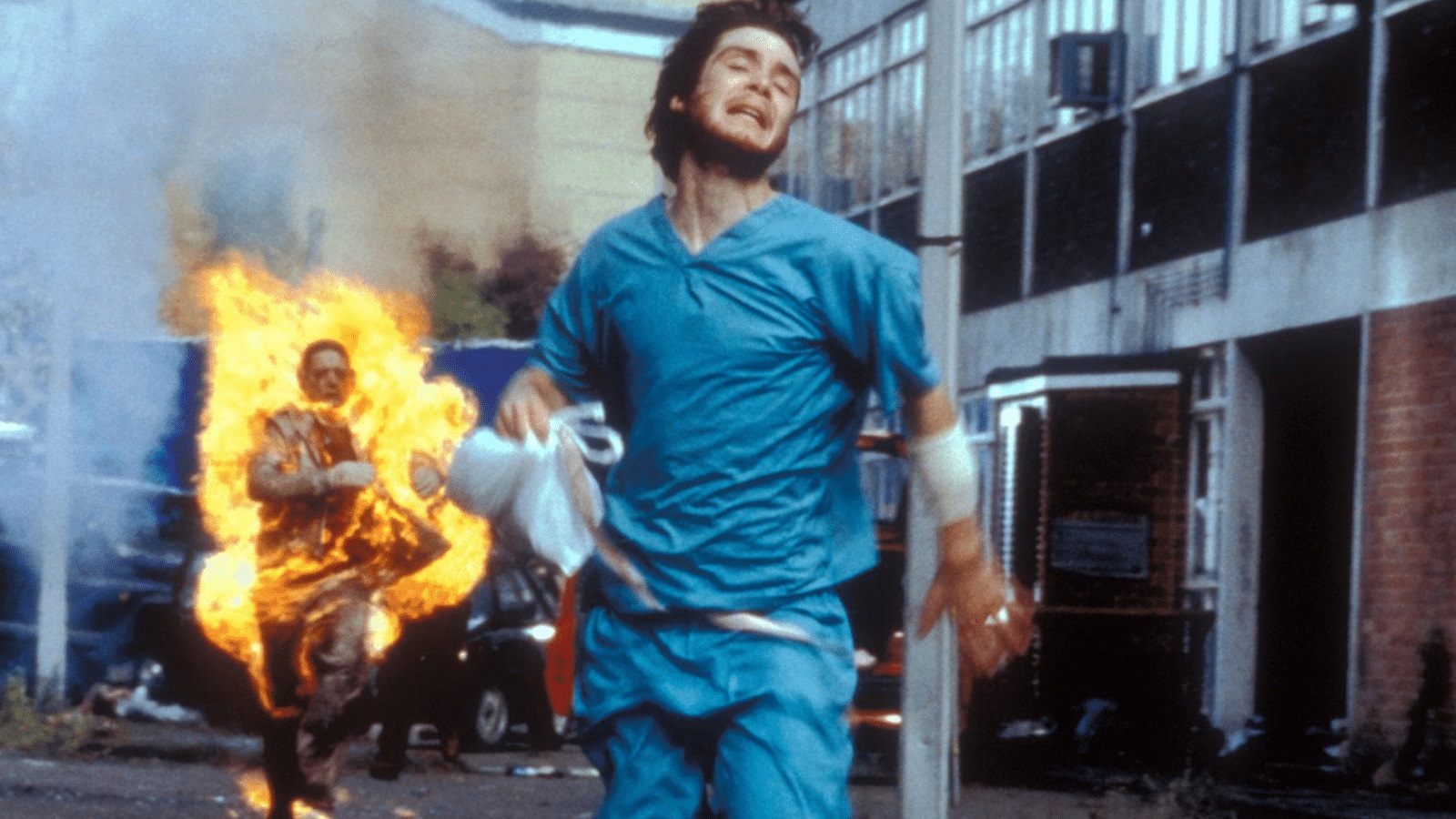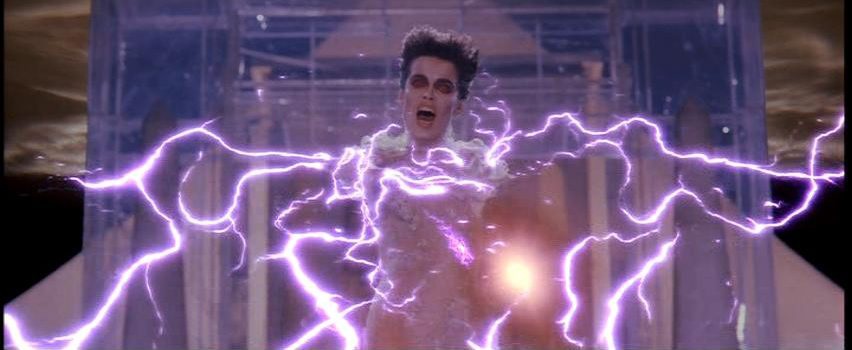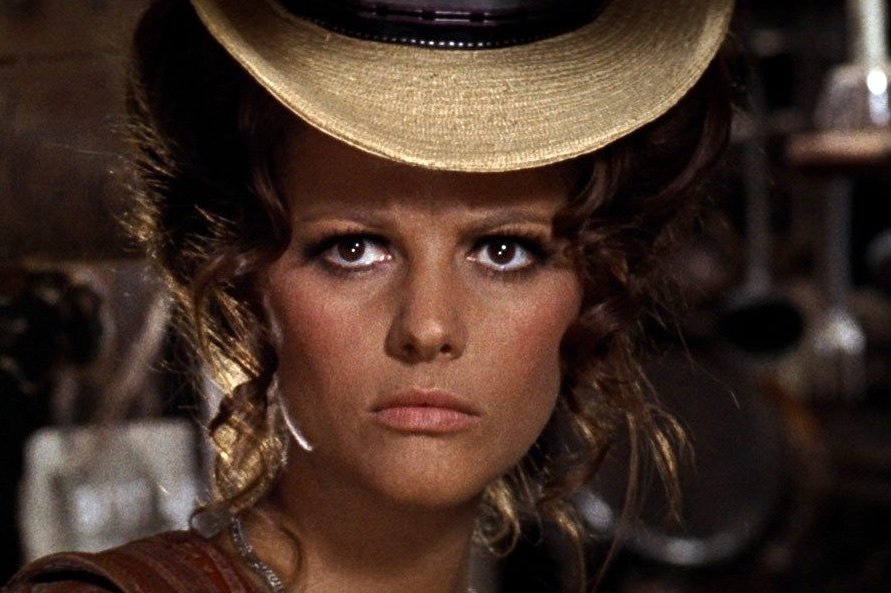
By Emad El-Din Aysha, PhD
The Senator from Wisconsin cannot frighten me by exclaiming, “My country, right or wrong.” In one sense I say so too. My country; and my country is the great American Republic. My country, right or wrong; if right, to be kept right; and if wrong, to be set right.
--- Carl Schurz (1829–1906)
Yes, time for another follow-up. The irony of course is that I’m continuing the thematic arch I began with my article “Outside the Pale: Science Fiction and Sexual Politics beyond the American Quarter”, just without referring to any science fiction movies. The two topics for dispersal here are a lovely Mackenzie Davis movie, A Country Called Home (2015), and yet another lesbian sex romp movie from France called Blue Is the Warmest Colour (2013). There is a third movie, to be honest, yet another French erotically psychological movie, The Exterminating Angels (2006).
This one I – yet again – made the mistake of watching late at night, but I won’t go into it too much. I was disappointed, despite the ‘incredible’ stuff going on. Too art house and too stiff, barring those female-dominated scenes. I’m going to mention it only in so far as it helps clarify points about the two above movies.
The Home Sweet Home Syndrome
A Country Called Home actually stars Imogen Poots as the estranged daughter Ellie, with MD in a technically secondary role, having to leave California to go back home to Texas because her drunkard father had a stroke. She can’t make it in time however, missing the earliest flight at the airport, and is then told by her supposed stepmom that he died. When she gets to Texas she finds that the town her father died in is originally his hometown and she learns to her amazement that she has grandparents who are still alive and well, while the stepmom (Mary McCormack as Amanda) isn’t actually married to her dad and is still married to someone else!
That’s the tragicomic backdrop to this little gem of a movie. Its’ very unassuming, slow and ethereal, gets more dramatic by the minute but also more funny so it balances itself out and stops you losing hope or not taking it too seriously. While eagerly getting to know the town on her first night there, for some reason, Ellie bumps into a girl dressed as a boy doing a guitar and singing routine – that’s MD if you’re wondering, playing the aptly named Reno. The singer gets booed off stage for dressing like a man, although her voice is very feminine and her songs quite romantic – never mind her lips and her eyes, and shoulders – and she and Ellie hit it off as friends while having a beer together. Reno then notices a key that Ellie has inherited from her dead father and makes a joke about that being the missing key to her heart, and she keeps on stealing beers from behind the bartender’s back before she’s even finished the first one. Afterwards she completes her song to Ellie but in a hospital room where Reno’s overweight mother is in a diabetic coma. Oh, almost forgot to tell you, Ellie’s father made guitars and other musical instruments as a hobby and had to pawn the violin he’d made for his daughter to pay unpaid bills, because of his drinking binges.
Ellie also learns that Amanda has a son, a really good boy called Jack (Ryan Bingham), with his Christ-like appearance. He is as responsible as they come, having to support his alcoholic and pill popping mother and put up with a junkie ex-wife while raising his cute little boy all by himself, and the boy might not actually be his given how his wife ‘paid’ for her drug habit. Even so he’s the supreme example of courage under fire, a man who made a conscious decision to be responsible and not end up either like his mother or stepdad, exemplified by the scene where he serves ice-tea to Ellie and they discuss their respective war wounds. (Notice that Reno, while responsible herself, does drink quite a lot, and you can’t help but notice that Jack’s boy has long girlish hair). Jack, while stressed out most of the time, warms to Ellie when she takes his son to a soccer game, highlighting the need for roots and rootedness and extended families to keep the burden off of you. Ellie’s father wasn’t born a jerk and his parents are actually cool people, wholesome without being self-righteous, and their boy only developed his drinking problem after joining the navy. It ‘seems’, and this is just me guessing, that he developed his drinking problem on account of the loneliness, being far away from home while also maybe on account of the military angle. I presume that this was during the Vietnam War, with all that implies thematically in terms of neglecting the home front in the pursuit of foreign adventures. The people in charge of the home front are embodied in an unholy trinity, if I can be so bold, with hypocrite priest (outwardly kind but refuses to help Ellie when he learns who her dad is), a ruthless undertaker (more below) and a control freak-hypochondriac shop clerk who gets defensively puritanical over Reno’s appearance. (All he sees is the masculine outfit, not the gorgeousness lying beneath. And I’m not just talking about her personality!)
The father, even after finally returning to his place of birth, can’t readjust. The dye has already been cast; like what they say about Caribbean’s sufferings from schizophrenia upon moving to England. That’s the crux of the movie, the need to have roots and a familiar space to live in but also how chokingly boring it all is, which drives everybody up the wall either to drink, drugs or teenage sex and pregnancy – that’s how Jack lost his planned football career while his mom got pregnant with him in high school. (And Westerners have the nerve to complain about underage marriages!) Ellie’s father, we are also told, liked rodeo rides as a kid, even though he was no cowboy, evidence of a deep desire for excitement and cheap thrills galore. In a heartbreaking scene where Ellie is throwing his ashes to the four winds, it’s at his favourite spot in the dilapidated town, namely, the train tracks. The scene is heartbreaking because Ellie has to use a plastic sack to carry his remains in, given that the box she’s rented wasn’t available right that minute, telling us just how unwholesome and unwarm the capitalist system is, even in the so-called moral heartland. (Ellie herself is a struggling designer, building a chair for old-people, but she can’t get ahead in the profession because she has no college education). He joined the navy to see the world and got more than he bargained for, whereas the residents mollify themselves by drinking or eating too much. That explains Reno’s mother who goes back to fatty and sugary foods – like the milkshakes the grandparents drink – after recovering and the scene where Ellie sees a mother berating her son for eating her fries, although she’s the one setting the fattening role-model to her infant boy.
Whatever happened to sitting on the toilet seat and reading all day to overcome boredom? Must be all of that television, filling people up with dreams of the bright lights of the big bad city. Not coincidentally then is another MD movie also set in Texas, Bad Turn Worse (2013). MD’s character here plays a working class girl headed to college in the big city and whose ambition in life is to be a writer, her bedroom looking like a library and with a huge map of the world on the wall. (You’ll also notice her character, Sue, has a ‘double-bed’, which is odd for a teenager, as if she’s looking for consolation of some sort. Can’t imagine why, not with all those books to keep her company come beddy-bye time).
Now for two surprising facts about this movie that takes it to the heart of this follow-up article. One, the director is a woman, Anna Axster, and this is her first big production. She did a masterful job and with such professionalism that you never guessed that the movie was done by a woman. It could have just as easily been directed by the maker of Meet the Parents (2000), as it has that same unassuming style that takes you completely off-guard. Two, and I have this from a reliable source, Reno is ‘transgender’! I honestly didn’t catch on to that, as hard I was concentrating on Mackenzie Davis’s stellar performance. (It’s also understated and portioned out, evidence of good direction on the part of Anna Axster, although I can’t seem to find any pictures of them together offstage for some reason). Querying my source he explained that transgender means a girl or a boy who wants to change their sex, beginning with hormone therapy and then surgery – but it’s not homosexuality as such. There is simply nothing to indicate that and I suspect that that’s deliberate, something meant to keep you guessing and wondering why Reno is the way she is, giving voice to the plight of white women in today’s US or A. (Can’t help but notice that all the main women characters are blonde, including the director herself, and she is quite attractive and has a familiar strong jawline). Ellie has to put up with a weakling roommate, a girl, and a boyfriend who loafs off of her and there is Jack’s son who has long hair as said before. Take a second look at that bar scene where Reno bemoans the absence of the key to her heart – later she admits to Ellie that it’s a safety deposit box key, as her mother has one just like it. You felt that she was lamenting the absence of a boyfriend or interested men complementing her on her looks prior to her ‘decision’, when she was called Margaret. (Reno is a way cooler name if you ask me, not too manly and Latin-sounding as well). And she’s doing it all in a self-consciously masculine way too, drinking away her sorrows and complaining to a complete stranger in a bar, again just like a man. But, and you can’t help but notice, when she’s putting her cowboy hat back on, she smoothes her hair to make sure it isn’t ruffled by when she took the hat off. Would a man or even a tomboy girl do that?
SHOULDER BURDEN: Anna Axster offstage and Mackenzie Davis onstage. Talk about direct and straight to the point!
Reno dresses like a cowboy, true enough, but I’m pretty sure cowgirls dress the same way (while degrading themselves by exposing some flesh) and her trousers while jeans are made for a woman’s hips, and a very womanly pair of hips at that. (Again, look at Sue in Bad Turn Worse, especially the swimming pool scenes. She’s got great hips and she knows it). What is more, Reno’s clothes are actually made or restyled by her mother – she inherits some of Ellie’s father’s clothes too – and the colours are tasteful and girlish. As brave as she is much as she wants to leave town, donning a distinctly non-cowboyish accent, she’s deathly afraid of flying. (Hint here since the woman selling the tickets at the airport scene is Asian and flying is depicted as a cold, impersonal means of travel, compared to driving across country, which is what Ellie does in the end, with Reno, and in her father’s car no less. And a family car at that has a tragic history).[1] Reno also tries to be a man when she stands up to the drunk in the funeral scene and gets knocked over very easily. So again I was genuinely surprised at her between-the-sexes status. If that’s what transgender women look and behave like, then I’m all for it. Reno’s that much of a girl, even more than Imogen Poots to be honest and she’s the Victorian English prototype. (I got the impression that she beefed up here to make her more like a country girl, rounder in contrast to Reno’s supposedly boyish frame. The makeup was also meant to give her bloodshot cheeks, like someone readjusting to hot weather).
The contrast between the duo of Reno and Ellie is also meant to show that Reno is a person Ellie could very easily have become. She was lucky because she has a responsible elder brother, Cole (Shea Whigham). This is meant to help you sympathise with Reno all more. Reno aka Mackenzie Davis has a delicate frame, especially her cheekbones, and walks like a girl, with grace and balance; not ambling around in a pathetic way like us men. (I’ve said before that MD walks like a ballerina, evident in Halt and Catch Fire, and she’s positively feline in Blade Runner 2049). To me she’s a tomboy, and only just, pushed into this situation by circumstance – namely lack of romance and being stuck taking care of her mom without a father-figure as far as the eye can see. Basically she doesn’t want to end up being a dependent like her mom. That’s the whole reason she is so damn skinny – I have a cousin who is the only thin one of a very fat family and she made a self-conscious decision to live off of salad.[2]
I hate to be a prude here but it seems women are much harsher on other women when it comes to so-called androgenity. They don’t realise that short haircuts in many women actually make them more femininely delicate by bringing out their boyish good looks. They don’t get that there is a difference between boys and men, specifically prepubescent boys before the hormones kick in and boys have squeaky voices like girls and soft features.
CANADA IN COMPARISON: Mackenzie Davis as Sue in ‘Bad Turn Worse’ and Carrie-Anne Moss as Trinity in ‘The Matrix’. Androgenity my foot!
Hence the quip, this is how you separate the boys from the ‘men’. Carrie-Anne Moss is prettier in The Matrix with Trinity’s boyish haircut and asexual character than she is in her strictly womanly roles, saddled by long bulky hair. And Erika Linder, from Below Her Mouth, calls herself a tomboy too but when her character praises roofers to Jasmine, she almost says it with a tap dance and with a very girlish voice indeed, for a Swede. (She’s a girly girl deep down and wants to advertise this fact, when she acts). All the more reason to bring men back into the fray, via the next chick flick on display, Blue Is the Warmest Colour, and directed not only by a man but by an ‘Arabic’ Frenchman, Abdellatif Kechiche.
Acknowledgements
Special thanks to Mexy Kleisner and Janice Caluscos.
NOTES:
[1] Just to clarify here, the Asian woman is not being portrayed in a bad way. There is racial integration evident in the storylines, such as the black postman who knows Ellie’s grandparents and tells her how happy they are to finally bond with their granddaughter.
[2] I’ve bumped into control freak shopkeepers too in Egypt, afraid you might actually buy something and take it away for them, so they can pay their bills. Contagion fears, moreover, are a sign of insecurity and even culture shock. I freak out germwise half the time walking the streets of Cairo, after all these years!






